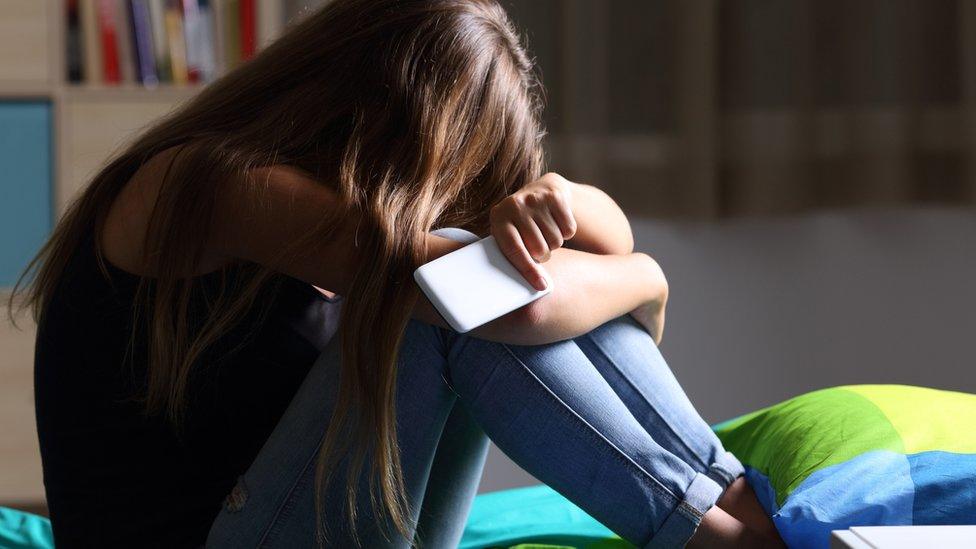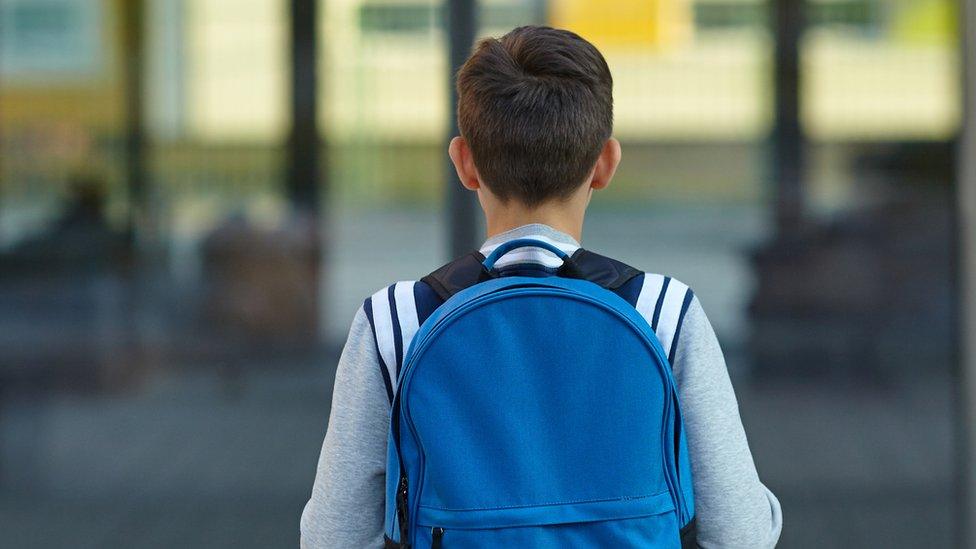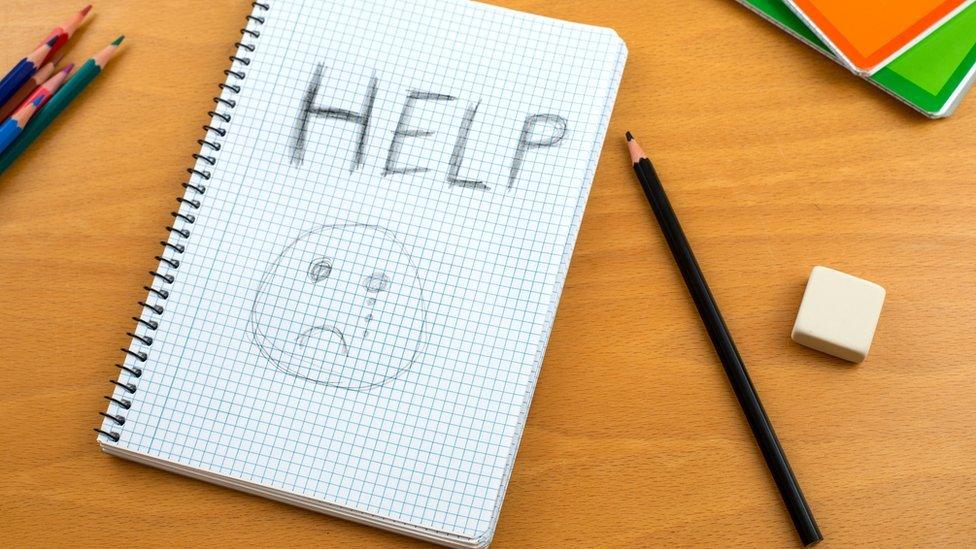Child mental health waiting times 'deeply disturbing'
- Published

More than 1,500 children with mental health problems had waited a year or more for specialist help by the end of 2020, according to official statistics.
In December 2019 the number of young people waiting longer than 52 weeks for Child and Adolescent Mental Health Services (CAMHS) stood at 589.
Campaigners said the statistics were "deeply disturbing" and the sector was in crisis before Covid.
Mental health minister Clare Haughey described long waits as "unacceptable".
But she said encouraging progress had been made recently.
The statistics are contained in Public Health Scotland's latest waiting times report, which shows that 1,560 youngsters had waited 52 weeks or more for a CAHMS appointment.
In total 11,166 children and young people were waiting to be seen by the service by the end of last year.
Public Health Scotland said the rise in the number of youngsters experiencing long waits was "potentially due to a combination of school closures, some not having access to a safe/confidential space to engage in digital appointments, or have a desire to wait for an in-person appointment".
The Scottish Children's Services Coalition (SCSC), an alliance of organisations working with vulnerable youngsters, described the latest figures as "deeply troubling"..
The Scottish government has recently increased investment in mental health services, but the SCSC insisted that "significantly greater funding is needed to address the current crisis facing our children and young people".
"Our mental health services must receive the funding they vitally need or we face having a lost generation of vulnerable children and young people," their spokesman added.
The Scottish Association for Mental Health (SAMH) said the figures show one in four children and young people were turned away from specialist mental health services during October to December last year.
The charity also noted none of the 14 regional NHS Boards met the 18 week target for adult psychological therapies services.
Jo Anderson, director of external affairs at SAMH, said: "Scotland's mental health services were struggling before the pandemic, and today's figures demonstrate once again that we need a radical new plan.
"Young people deserve the right to get help the first time they ask, without fearing that they will be turned away. And the need for quick access to psychological wellbeing support has never been greater."
Investment to address long waiting times
Mental health minister Clare Haughey said there had been a "significant increase" in performance in the most recent quarter, describing this as "encouraging".
But she added: "We want to go further as long waits are unacceptable."
Ms Haughey said a number of actions had been set out to "progress improvement on access to CAMHS and psychological therapies".
She also said the £120m announced for the mental health recovery and renewal fund is the "single largest investment in mental health in the history of devolution".
Ms Haughey added: "It will prioritise our ongoing work to improve specialist CAMHS services, address long waiting times, and clear waiting list backlogs."
New Scottish Labour leader Anas Sarwar raised his concerns after the first minister's parliamentary statement on the easing of lockdown restrictions.
Mr Sarwar said: "Parents across the country are worried about their children's education and mental health.
"In the last quarter, one in four children had their referral rejected. The Scottish government must support children who need help right now, particularly in crisis services."
Scottish Liberal Democrat leader Willie Rennie said: "There were already a record number of children waiting over a year for treatment at the outset of the pandemic, years into the SNP government's mental health strategy.
"Now they number nearly 2,000, with record numbers of adults waiting over a year too.
"A year feels like a lifetime if you are waiting for help. Problems that can start small become crises. Frontline staff are working tirelessly but there aren't enough of them."
Related topics
- Published30 June 2020

- Published3 March 2020

- Published4 June 2019
